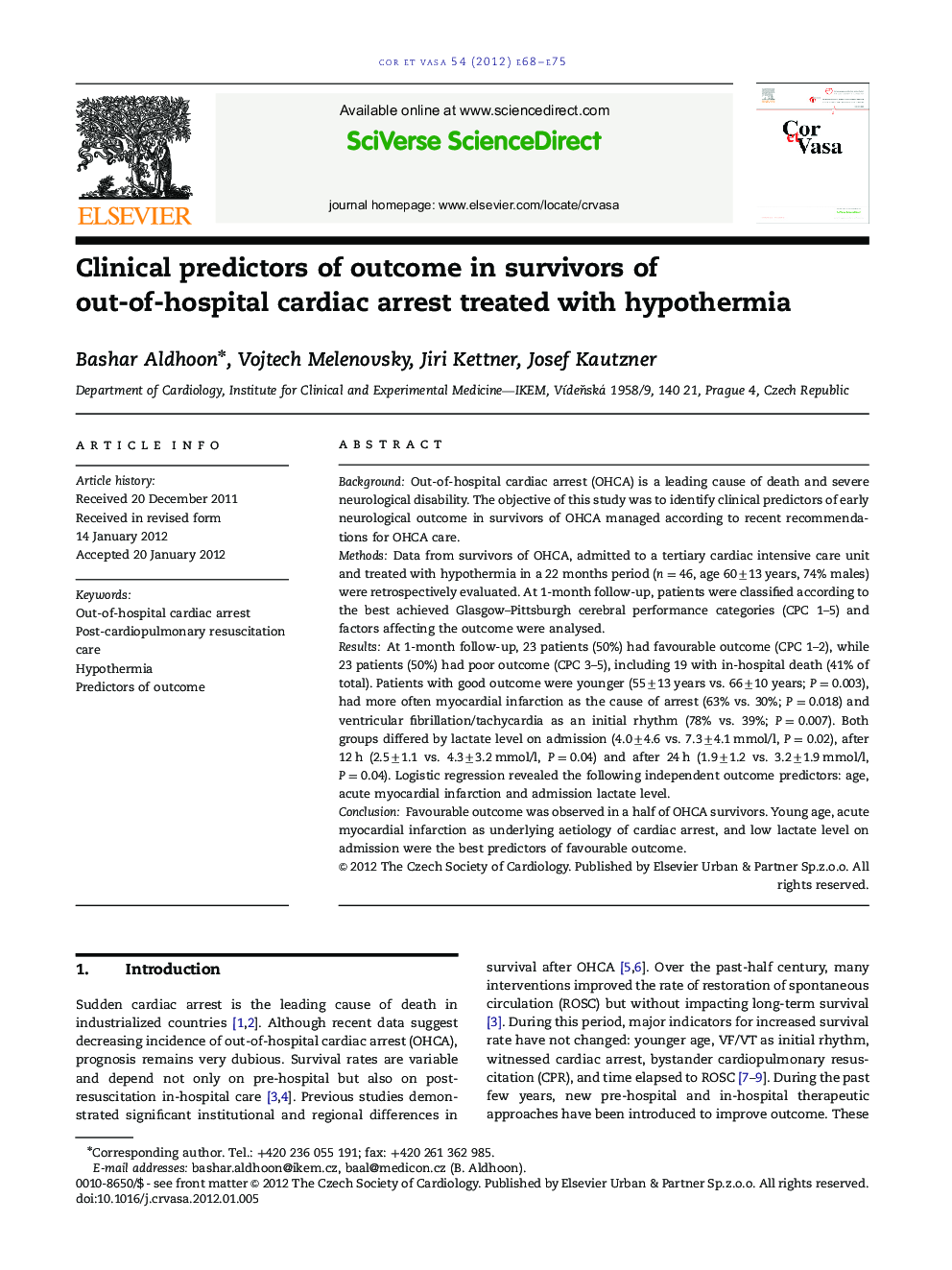| Article ID | Journal | Published Year | Pages | File Type |
|---|---|---|---|---|
| 2722431 | Cor et Vasa | 2012 | 8 Pages |
BackgroundOut-of-hospital cardiac arrest (OHCA) is a leading cause of death and severe neurological disability. The objective of this study was to identify clinical predictors of early neurological outcome in survivors of OHCA managed according to recent recommendations for OHCA care.MethodsData from survivors of OHCA, admitted to a tertiary cardiac intensive care unit and treated with hypothermia in a 22 months period (n=46, age 60±13 years, 74% males) were retrospectively evaluated. At 1-month follow-up, patients were classified according to the best achieved Glasgow–Pittsburgh cerebral performance categories (CPC 1–5) and factors affecting the outcome were analysed.ResultsAt 1-month follow-up, 23 patients (50%) had favourable outcome (CPC 1–2), while 23 patients (50%) had poor outcome (CPC 3–5), including 19 with in-hospital death (41% of total). Patients with good outcome were younger (55±13 years vs. 66±10 years; P=0.003), had more often myocardial infarction as the cause of arrest (63% vs. 30%; P=0.018) and ventricular fibrillation/tachycardia as an initial rhythm (78% vs. 39%; P=0.007). Both groups differed by lactate level on admission (4.0±4.6 vs. 7.3±4.1 mmol/l, P=0.02), after 12 h (2.5±1.1 vs. 4.3±3.2 mmol/l, P=0.04) and after 24 h (1.9±1.2 vs. 3.2±1.9 mmol/l, P=0.04). Logistic regression revealed the following independent outcome predictors: age, acute myocardial infarction and admission lactate level.ConclusionFavourable outcome was observed in a half of OHCA survivors. Young age, acute myocardial infarction as underlying aetiology of cardiac arrest, and low lactate level on admission were the best predictors of favourable outcome.
